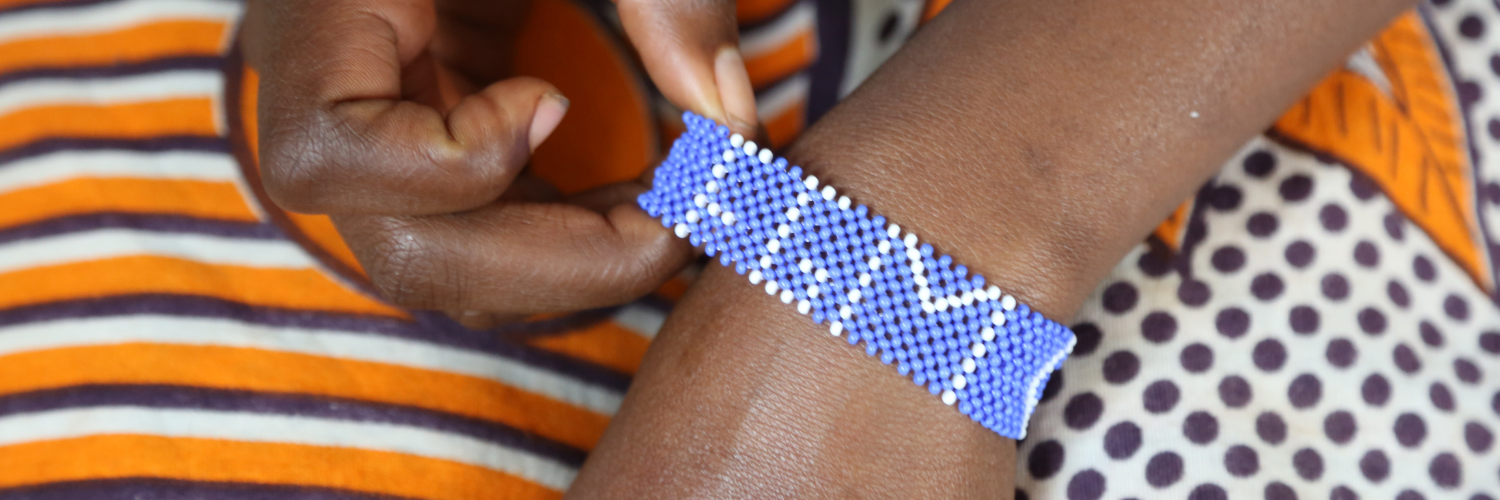We believe people working together can change the world. In West Africa, we’re proud to be a part of a movement working to end female genital mutilation across the region. Collaborating with a wide range of people and organizations enables us to learn from one another, and effectively adapt to the nuances and specificities of the unique contexts where we work.
As this year’s theme for Day of the African Child focuses on eliminating harmful practices, we asked our partners across West Africa to share their thoughts on the way forward for the movement.
AGUEH Dossi Sekonnou Gloria (From the Republic of Benin)
Chairperson of Réseau des Femmes Leaders pour le Développement (RFLD)
The practice of female genital mutilation is still prevalent in several communities, despite laws that prohibit it. Several countries do not have a legal framework for the fight against FGM, partly because of the influence of traditional leaders and culture. Organizing various activities to advocate the end of FGM will help ensure women and girls enjoy their rights. HAPPY DAY OF THE AFRICAN CHILD 2022.
Aminata Koroma (From Sierra Leone)
Secretary of the Forum Against Harmful Practices (FAHP)
The Forum Against Harmful Practices (FAHP) is a coalition of over 20 National Non-Governmental Organizations across Sierra Leone that was established in June 2014 to advocate for the reduction and elimination of harmful traditional practices, including FGM. We work to end FGM in Sierra Leone, by introducing and promoting Alternative Rites of Passage to replace FGM in Bondo Secret Society for Women. We support Bondo Society as a safe space for women. So FAHP says “YES to BONDO and No to FGM”.
Ballo Brehima (From Mali)
Program Officer at Association Malienne pour le Suivi et l’Orientation des Pratiques Traditionnelles (AMSOPT)
2018 Demographic and Health Survey in Mali says that 89% of women aged 15-49 and 73% of girls aged 0-14 have undergone female genital mutilation. Investing in the fight against FGM will empower women and girls and protect their sexual and reproductive health rights. AMSOPT joins Equality Now to fight against all forms of female genital mutilation.
Bathor Seck (From Senegal)
Administrative Officer at Association des Juristes Sénégalaises (AJS)
The Association of Senegalese Jurists (AJS) is committed to the fight for the eradication of all forms of violence against children for an Africa where the physical integrity of people including that of children is protected and respected. Today, the plight of children in Senegal is still worrying despite a clear legal framework. To this end, AJS urges the government to adopt and effectively apply the draft Children’s Code so that all children can fully enjoy their rights.
Mariam Lamizana (From Burkina Faso)
Chairperson at ONG Voix de Femmes (VDF)
On this Day of the African Child, the NGO Voix de Femmes, which is committed to the fight against violence against children, calls on all the actors and the government to act in favor of children’s protection. For that, it is necessary to:
– Reinforce protection actions in the fight against FGM in areas with solid security challenges. Strengthen the coordination of actions in favor of children at the national level
– Reinforce the budgets allocated to the special protection of children in emergencies (internally displaced children)
– Accelerate the implementation of the 2040 Agenda for the Respect of the African Charter on the Rights and Welfare of the Child (ACERWC) as well as the Convention on the Welfare of the Child (CWD).
– Strengthen the application of national legislation in favor of children’s rights and the Maputo Protocol.
Mackins Pajibo (From Liberia)
Program Officer – Women Solidarity Inc.
As Liberians celebrate the 2022 Day of the African Child, we must make it clear that harmful practices must never be condoned in any form. Duty bearers must be pressured to take positive steps in ending harmful practices against women and girls. The recent 3-year suspension of FGM practice in the country is yet to make any difference as the practice is reported to be ongoing in many parts of the country.
I strongly believe relentless efforts must be exerted through advocacy, awareness, monitoring, and by holding duty bearers accountable for decisions they made against harmful practices if serious progress is to be made in ending harmful practices against women and girls in Liberia.
Learn more about our work to end harmful practices across Africa and around the world.
